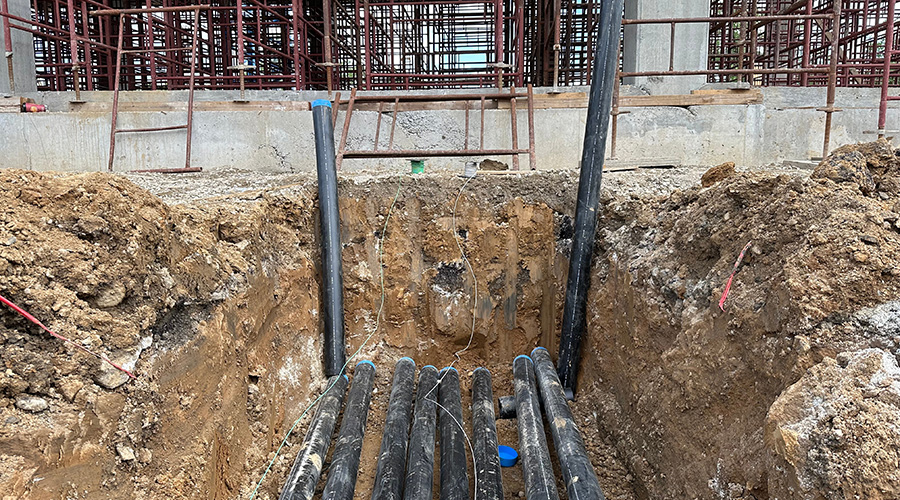Sustainability Spotlight: Mowers
November 6, 2015
With a variety of options in platforms, technology and features, grounds managers have more choices than ever when specifying mowers. Mowers are becoming more powerful and productive and, at the same time, lighter. Manufacturers are achieving this in part through the increased use of hydraulics, more durable plastics, polymers, and light-weight metal components. In choosing the right combination of features in any particular model, managers have to carefully evaluate options to determine the solution that best fits departments' needs for productivity, efficiency, environmental impact, comfort, and reliability.
Engines and transmissions. Today's mowers offer options such as V-twin engines, liquid cooling and diesel power. The inclusion of overhead valves in the engine design also has led not only to better fuel economy and fewer emissions but to more power and torque. The last 15 years also have seen the advent of hydrostatic and automatic transmission, with no gear shifting, which make operations much easier and more productive. Larger horsepower engines have evolved because technological advances have reduced the cost of manufacturing higher horsepower engines. Electronic fuel-injection (EFI) engine technology also has become an industry standard. EFI engines can cut down on fuel use by up to 20 percent, and because they do not have a carburetor, they greatly reduce maintenance and replacement costs.
Zero-turn radius. Recent years have seen an increase in the need for more productive mowers that can handle a variety of terrains. Most manufacturers have responded by offering this design. Zero-turn-radius mowers position the mowing deck at the front of the machine. As a result, they enable operators to cut large areas of grass much more easily in less time, with greater maneuverability, speed, and cutting capabilities.
Fuel choice. More manufacturers now offer mowers powered by alternative fuels. Propane-powered mowers are the biggest development because propane offers the potential for reduced fuel costs when compared to gasoline. It also burns cleaner and creates fewer combustion byproducts, compared to gasoline. It also will not contaminate the soil or groundwater if operators spill it. As more managers continue looking for fuel alternatives, clean diesel-powered mowers are also becoming more popular for several reasons. Clean-burning diesel provides more than 50 percent greater power than propane per gallon equivalent, and it emits lower levels of carbon monoxide and certain greenhouse gasses than propane- or gasoline-powered engines. Biodiesel fuel also can power any conventional diesel engine, and it is renewable and produced domestically from new and recycled vegetable oils and animal fat.
Environmental issues. Few operations have been affected more by the rise of sustainability than mowing. Environmental issues have played a key role in an increased selection of environmentally friendly features, such as biodegradable hydraulic oils, lower noise levels, and lower emission levels, to reduce the impact of mowers on their landscapes. With propane, stringent Tier 4 emission standards, EFI and electric power all becoming hot topics, managers can expect to see these options more often when purchasing mowers.
Ergonomics and safe operation. Working in the hot sun is hard enough, but throw in an uncomfortable, stiff mower seat, and the day will feel even longer. Manufacturers now make a concerted effort to increase operator comfort. More mowers are available with such ergonomic features as independent four-wheel suspension, seat suspension, vibration absorption, improved steering, and other control enhancements. Some models have electric deck lifts for easier control of cutting height. One model can be set at 19 different cutting heights. Other operator comfort and safety considerations for managers to consider include: lower centers of gravity; more compact body styles that reduce overall mower weight; engine advances that produce fewer emissions and reduce noise; and four-wheel-drive capability with flotation tires to help reduce compaction and make driving in wet conditions possible.
Read more
Next
Read next on FacilitiesNet







